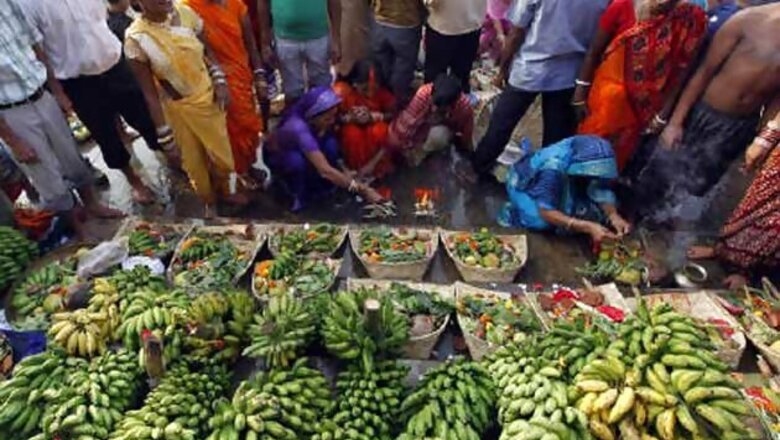
views
With everything going green/raw/natural, the term 'organic farming' is very familiar to us these days. But what actually is organic farming?
In simple terms, organic farming is a method of farming which works in harmony with nature rather than against it. This involves using techniques to achieve good crop yields without harming the natural environment or the people who live and work in it.
Such kind of farming aims at cultivating the land and raising crops by use of organic wastes (crop, animal and farm wastes, aquatic wastes) and other biodegradable materials. That keeps the soil fertile and helps in maintaining a pollution-free environment without harming the natural balance and leading to sustainable development.
There is nothing trendy or new about organic farming. It is the way we produced our food for thousands of years until the very recent arrival of synthetic fertilisers and agri-chemicals in the last century. The concept of organic farming originated out of the organic movement that existed in the 1930s and 1940s. The organic movement was actually an anti-synthetic fertiliser movement. It was introduced by Sir Albert Howard, recognised as the father of organic farming, who wanted to evolve a more eco-friendly way of sustainable agriculture.
The benefits of organic farming are far-reaching. From improving the biodiversity (soil life) and long-term productivity of soil, it also helps in preserving the original nutritional content of food, keeping us healthy and the environment clean.
So, now when we know all the good stuff about this topic, how can we actually enjoy its benefits? Trapped in busy city-life and after enslaving ourselves to technology, living in multi-storey cubes with everything in ready-to-use format, how can one practise organic farming in the simplest way?
The terrace and balcony of your house, which is used to dry clothes and keeping all the junk, can affordably be converted into your home-made organic farm. With reports of existence of pesticides in fruits, vegetables and food items becoming a regular feature in newspapers and magazines, It's time for you to turn your hands dirty and set up your own organic kitchen garden.
With the problem of space constraint in our cities and towns, the idea of growing pesticide-free vegetables and fruits in a garden may seem like a bit far-fetched. But growing and owning an organic kitchen garden is actually utterly achievable. So to start with, you need not have a big area. Your own terrace, balcony or even windowsill can be used.
At the very outset, you don't need to invest in fancy or earthen pots. You can even make use of plastic bottles, buckets and bathtubs to grow vegetables. Take a medium-sized bathtub; fill it with soil and home compost to grow cabbages, cauliflowers, capsicums, radish and onions. The most important step in organic farming is to make nutrient-rich soil which has abundant and diverse microbial life that can support healthy plant growth.
It is simple to prepare and the results are extremely effective. Start with what you have. There's no need to buy earthworms or any other stuff. Simply convert your kitchen waste into resource. You can start by growing basic vegetables like basil (tulsi), mint leaves (pudina), kadi patta, chillies, lemon grass and different varieties of spinach. In fact, the best is to start using the seeds of used fruits or vegetables and plant them. Buying of seeds is definitely a suggested idea but to start with, you can always use mango, coriander, tomato or pumpkin seeds for your garden.
Since they don't require too much sunlight, the plant can be kept in a living room or at a place near the window. You can grow guava, pomegranate and pineapple, preferably on your terrace since these trees require space.
You can also grow turmeric (amba or raw haldi) easily. Once you are well-versed with simple plants, graduate to growing cabbage, cauliflower, capsicum, radish, onions and tomatoes.
Creating your own organic garden may costs you from Rs zero to a maximum of Rs 100 in the early stages and you can keep modifying it as per your needs. So, organic farming is not that tough as you always used to think. Try out these small steps and create your own organic kitchen garden. You should definitely experience and explore the process. Organic farming is therapeutic.


















Comments
0 comment